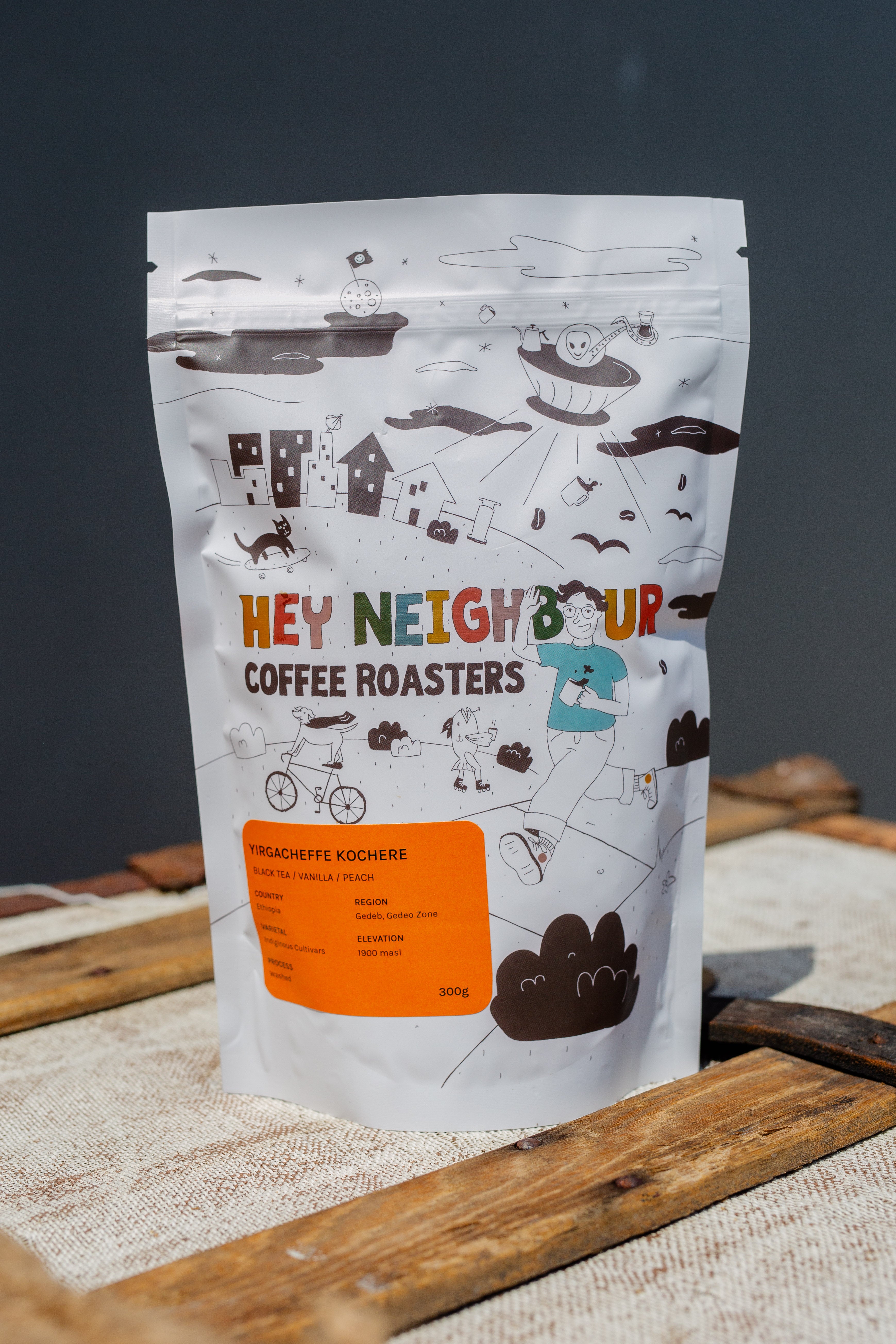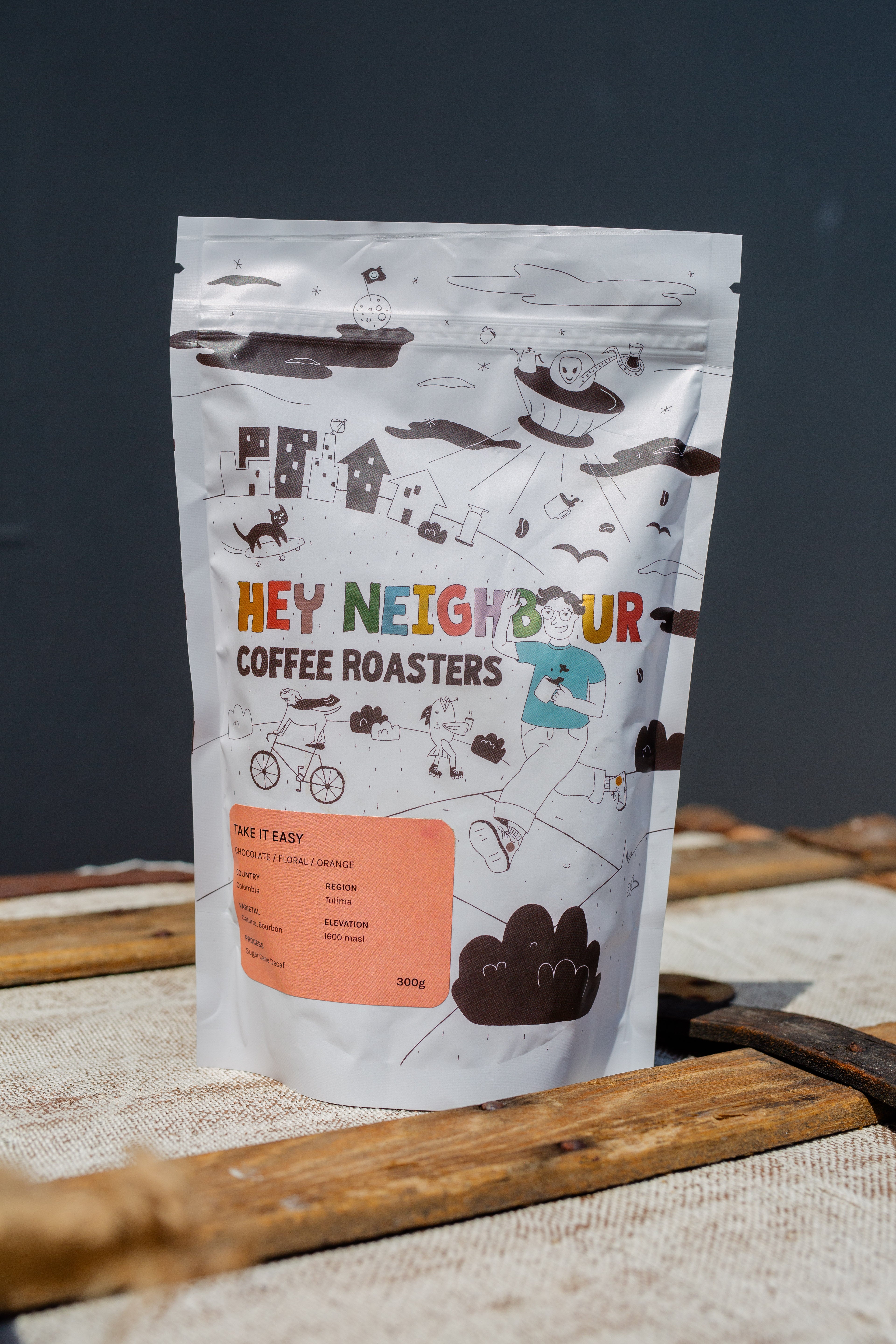Say hello to your next favourite brew.
Unique coffees from around the world, carefully sourced for you.

Happy Holidays Neighbours !
Nestled in the enchanting community of El Pinabete, in the Los Arados region of Mozonte at 1570 - 1690 masl, lies Finca Libre.
The process starts with whole coffee cherries sealed in temperature-controlled barrels to keep unwanted bacteria at bay. As fermentation begins, the cherries release CO₂, creating an oxygen-free environment that drives “inside-out” fermentation within the bean.
Over several days, the cherries break down into a thick, jammy texture before being moved to suspended beds in the cold room to halt any uncontrolled fermentation. Once the cherries reach the right humidity, they’re transferred outdoors to raised African beds to finish drying in the sun.
Inspired by the world of wine, carbonic maceration enhances the coffee's fruity notes while adding body, complexity, and richness to the cup.
Available for the holiday season only !

El Tulipan, Huila and Yirgacheffe Kochere Cooperative both embody the same core values, communities that are built on generations of smallholder farmers. Through the preservation of tradition and sustainable harvest practices, these farmers cultivate exceptional varietals that showcase their dedication and passion. The result is a level of excellence that shines through in every cup. Every bag you purchase supports a local organization in your neighbourhood, making a positive impact in our community.
The Good Neighbour Blend highlights a local organization for six months at a time, with every bag contributing to their work in our community. We are supporting Foundry Kamloops, a program coming soon.
Interior Community Services is proud to help bring a Foundry Centre to Kamloops, a welcoming space for youth aged 12–24 and their caregivers. Foundry will provide mental health care, primary care, substance use support, peer support, and other essential services all under one roof. It’s a place where young people can get the help they need, when they need it.
Every bag you purchase helps open the doors to Foundry Kamloops and brings us one step closer to supporting the future leaders of our community.
Thank you for your support!

Direct traceability and transparency are core values at Baho Coffee network in Rwanda. The Fugi washing station focuses exclusively on specialty coffee, setting it apart in both quality and consistency. Like in much of Africa, coffee production in Rwanda is dominated by smallholder farmers contributing very small volumes. Afrodis, the station manager, personally oversees nearly every aspect of operations.
This hands-on approach makes it possible to achieve fully traceable lots, something still exceptionally rare in East Africa. Fugi played a pivotal role in the launch of Baho Coffee and remains a cornerstone of its operations today. These tiny yields also explain why producers rely on centralized washing stations like Fugi, rather than building their own costly wet and dry mills.

Nestled in the fertile soils of the Antigua Valley, Finca Pulca is a heritage rich farm dating back to 1541. Cultivated by the Zelaya family since the 1800s, this third-generation farm acquired and produced Arabica coffee. Situated in the unique microclimate and elevated points of the prestigious soils in the Antigua Valley, Maria Zelaya Aguirre undergoes meticulous processing and washing with crystal-clear spring water from the surrounding mountains. The estate takes a proactive approach to cultivation with well-spaced trees and a three year pruning cycle which boosts airflow, light and healthy plants.

In the highlands of Carmo de Minas, Brazil, the Pereira family has cultivated coffee for five generations. Grown at 1100–1200 masl, their Acaiá, Catucaí Amarelo, and Bourbon Amarelo coffees are handpicked at peak ripeness to capture the region’s vibrant flavours. The families commitment to sustainability is evident in every detail, from pristine spring water and solar-powered energy to composted byproducts from their dairy cattle that enrich the soil. For the Pereiras, coffee is more than a crop, it’s a legacy of quality, care, and respect for the land.


Situated in the central-western region of Colombia, Tolima Department is home to Ibagué, its capital. Renowned as Colombias largest coffee producer, Tolima contributes to 12% of the nations coffee production.
Tolima coffee is characterized by its floral aroma, balanced acidity, and exceptional cup profile, a result of the region’s unique topography and geographic conditions.
This coffee has been decaffeinated using the sugarcane decaf process, a natural method that utilizes a solvent derived from sugarcane molasses.




